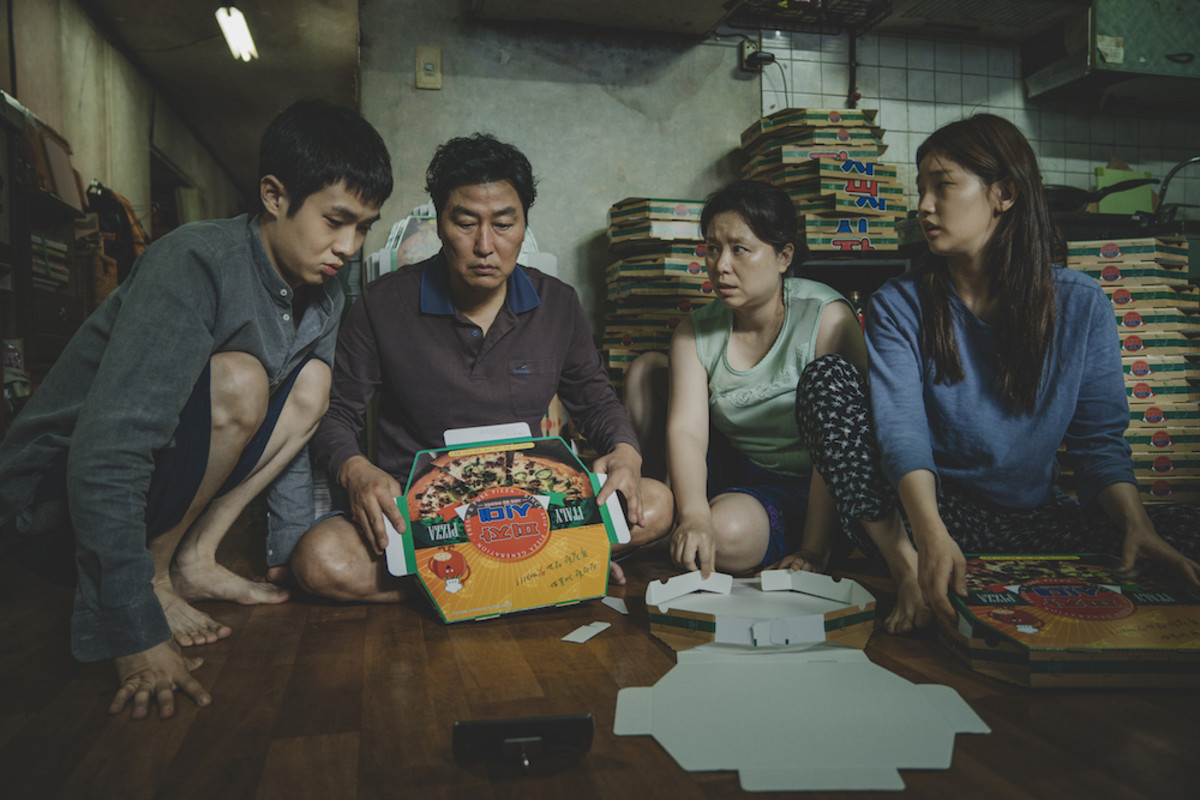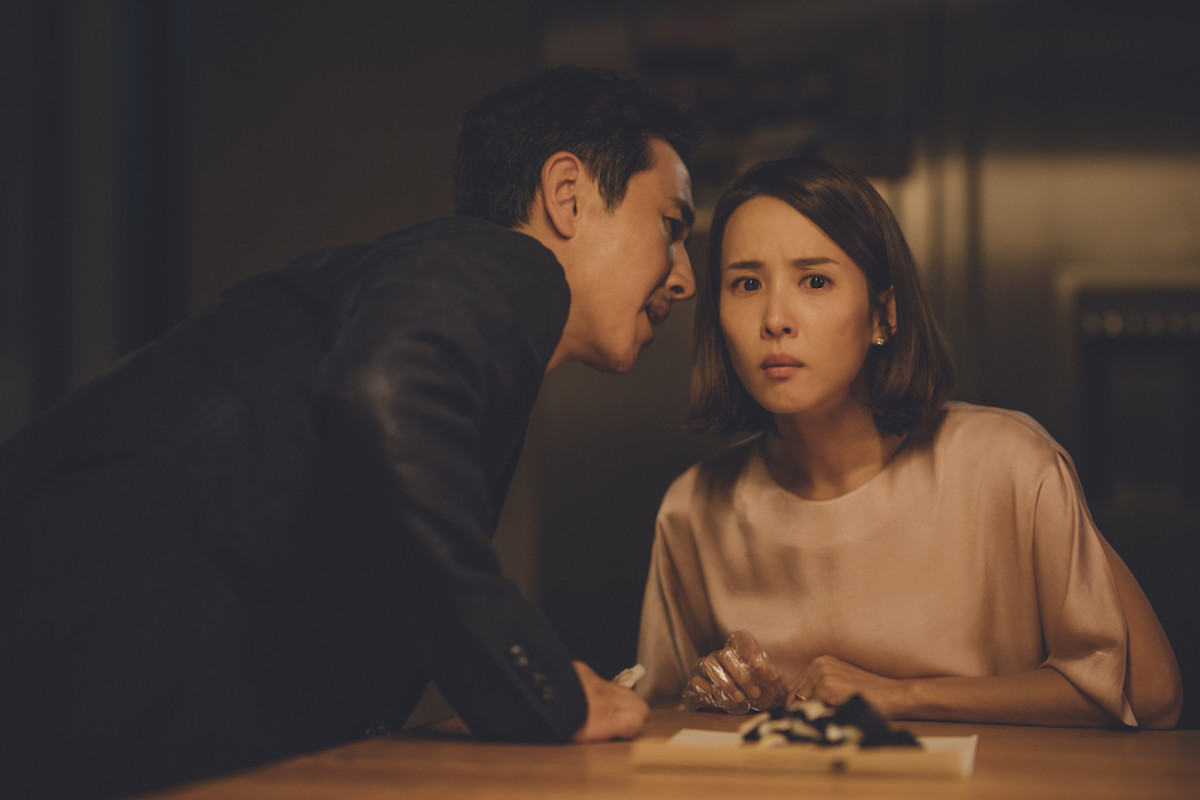INTERVIEW: “Parasite” Editor Jinmo Yang
Susan Kouguell speaks with “Parasite” editor Jinmo Yang about his collaboration with Director Bong Joon Ho, defying the rules of genre, and finding the rhythm of the film.SUSAN KOUGUELL
DEC 5, 2019
“As a depiction of ordinary people who fall into an unavoidable commotion, Parasite is: a comedy without clowns, a tragedy without villains, all leading to a violent tangle and a headlong plunge down the stairs.”
— Director Bong Joon Ho
Just days before my Skype interview with editor Jinmo Yang (he was in South Korea and I was in Manhattan) the Cannes Film Festival Palme D’or winner Parasite became the top grossing foreign-language film of 2019.
About Parasite
Meet the Park Family — the picture of aspirational wealth. And the Kim Family, rich in street smarts but not much else. Be it chance or fate, these two houses are brought together and the Kims sense a golden opportunity. Masterminded by college-aged Ki-woo, the Kim children expediently install themselves as tutor and art therapist, to the Parks. Soon, a symbiotic relationship forms between the two families. The Kims provide “indispensable” luxury services while the Parks obliviously bankroll their entire household. When a parasitic interloper threatens the Kims’ newfound comfort, a savage, underhanded battle for dominance breaks out, threatening to destroy the fragile ecosystem between the Kims and the Parks. (Source: Neon)

Jinmo Yang
Award-winning film editor Jinmo Yang has edited over a dozen feature films, including Train To Busan and is a long-time collaborator of Director Joon-Ho Bong, having worked with him sinceSnowpiercer (VFX editor) andOkja (editor).
THE INTERVIEW
We began our interview talking about a quote from Director Joon-Ho Bong about Parasite:
“It’s a human drama, but one that is strongly imbued with the contemporary. Although the plot consists of a string of unique and distinctive situations, it is nonetheless a story that could very well take place in the real world. One can see it as taking an incident that was on the news or on social media, and putting it on the screen. So in that sense it’s a quite realistic drama, but I wouldn’t object if one were to call it a crime drama, a comedy, a sad human drama, or a horrific thriller. I always try my best to overturn viewer expectations.”
Kouguell: The film defies traditional genre, as it transcends drama, dark comedy and thriller. Talk about how you worked with the director to create this in the film.
Yang: The script itself reflects how the genres were mixed in the story because that’s a common thread in Bong’s films. I wasn’t really shocked at how all the genres were mixed.
Kouguell: Tell me about your collaboration process with Bong.
Yang: I first began working as his on set editor and for Parasite I actually had my assistant working as my on site editor so I was really able to communicate with the team even as they were shooting. In the editing room, based on the rough edit we got, director Bong and I delved into the details pretty much straight away in our process.
Kouguell: How did you and Bong find the rhythm in the film? There’s such a specific rhythm especially as the genre shifts and the story unfolds.
Yang: There’s always a certain rhythm when Bong writes a script and he continues to develop that sense of rhythm through his storyboarding process, and as he’s shooting; he thinks about how this rhythm will be created during the editing process.

When Bong comes to the editing room, we start working on this together, there are some changes that he makes with me in terms of the rhythm he’s constructed during the previous processes. With very specific sequences, he does leave it to me in terms of creating the rhythm and pacing and the tempo, and because we worked on so many films together, with Parasite it wasn’t very difficult to coordinate our senses of rhythm.
Yang cited an example:
One obstacle was that the beats in certain shots felt too lagging. Director Bong wanted to shorten their length and tighten their rhythm, yet maintain all the essential beats. In these instances, we shared the same goal — remove all the “fat,” yet save the “essence.”
One example is when Ki-taek holds up Moon-gwang’s blood-ridden tissue. Originally, Ki-taek had to go through a lot of motions and gestures, such as opening and spraying the packet of hot sauce, to reach the final gesture of “holding up the tissue.” However, we felt like this dragged on too long. So what I suggested was to create jump cuts of Ki-taek’s actions. In the end, the audience didn’t miss out on anything. There were no problems with continuity, yet we achieved the rhythm we were aiming for.
Kouguell: Bong was the co-writer of the script along with Han Jin Won — how closely in the editing room did you work with the screenplay?
Yang: When I’m editing I hardly rely on the actual script; I just work on the footage and the images we have because the basic structure of the story is already set at that point so I don’t go back to the script. I take in account that for director Bong everything he shoots is pretty much in the script.
Kouguell: So, not much improvising then?
Yang: In terms of the story it’s really not different at all but within particular sequences the tone and pacing are often fairly different from what’s in the script.
Kouguell: Advice for film students and aspiring filmmakers?
Yang: Watch a lot of films and not only films that are currently playing in theaters but international films. For me, I tend to be inspired by classic films and older films. When I’m working I tend to use older films as my reference. I’m very inspired by the French New Wave because I think at that time there were new editing styles and techniques that came out. One of my favorites is My Life to Live by Godard and I also watch a lot of films by Akira Kurosowa from the 60s and 70s.